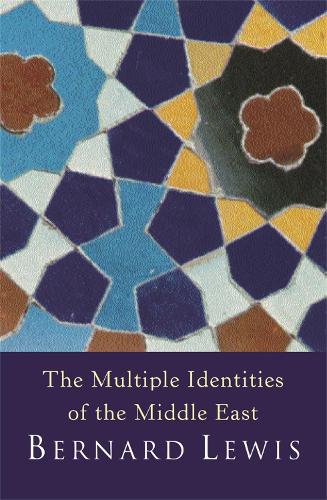
The Multiple Identities Of The Middle East
(Paperback)
Publishing Details
The Multiple Identities Of The Middle East
By (Author) Bernard Lewis
Orion Publishing Co
Weidenfeld & Nicolson
2nd December 1999
United Kingdom
Classifications
General
Non Fiction
Cultural studies
956
Physical Properties
Paperback
176
Width 160mm, Height 200mm, Spine 14mm
174g
Description
Most of the modern states of the Middle East are of recent origin, yet the region is the birthplace of three religions and many civilizations. Bernard Lewis, one of the world's most respected historians of the Middle East, discusses the countries and frontiers; their religions and communities; language and loyalties to place, and Middle Eastern perceptions of outsiders. He also considers the effect of alien ideas and influences including liberalism, nationalism, fascism, socialism and democracy. Lewis cuts to the essence of how identity has traditionally been experienced by people in the Middle East, how Western political concepts have altered Middle-Eastern notions of identity, and how these imported Western ideas have inflamed political conflicts in that region. "The primary identities are those acquired at birth," Lewis writes. The first determiner of identity is blood, the second is place, and the third is religious community, which for many is "the only loyalty that transcends local and immediate bonds." Lewis adds, "The second broad category of identity is that of allegiance to a ruler," and notes that these two categories of identity were the only ones that existed until modern times, when the Middle East came under the influence of Europe.
Author Bio
Bernard Lewis is Emeritus Professor of Near Eastern Studies at Princeton University. Formerly Professor of Middle Eastern History at the School of Oriental & African Studies, London, 1949-74.
